You may or may not have heard of choline, but rest assured after you read this post you’ll know everything you need to know about this important nutrient. From preconception through adulthood, it plays an essential role in optimum health yet most people aren’t getting enough!
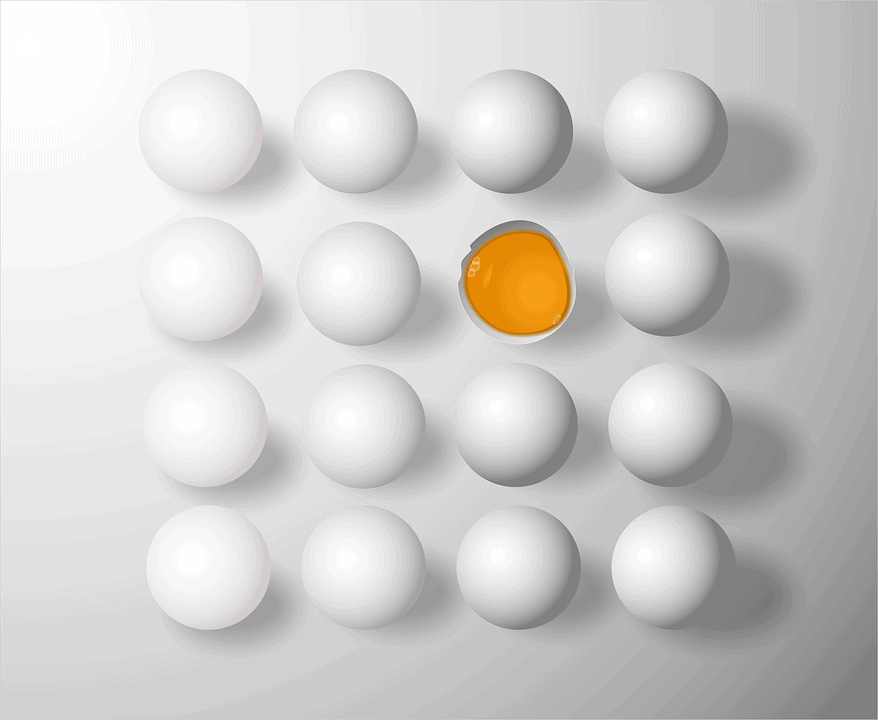
Disclosure: This post was sponsored by VitaCholine. As always, I only collaborate with companies who align with my mission and who support evidenced-based science.
What’s the deal with choline?
You might recall that back in 2016, when I was trying to get pregnant, I wrote a post about choline as an essential nutrient when you are trying to conceive.
Fast forward a few years (and one baby later!) and I wanted to share some exciting new developments on the choline front – and provide a little 101 for anyone that knows little-to-nothing about this nutrient.
And, don’t worry – if you have no idea what the heck choline is, I am here to help! Rest assured, you’re not the only one, and that’s coming from others who have a nutrition background. Indeed, nine out of ten Americans do not meet choline needs, making it even more critical for us to shine a spotlight on this under-the-radar – but incredibly important – essential nutrient.
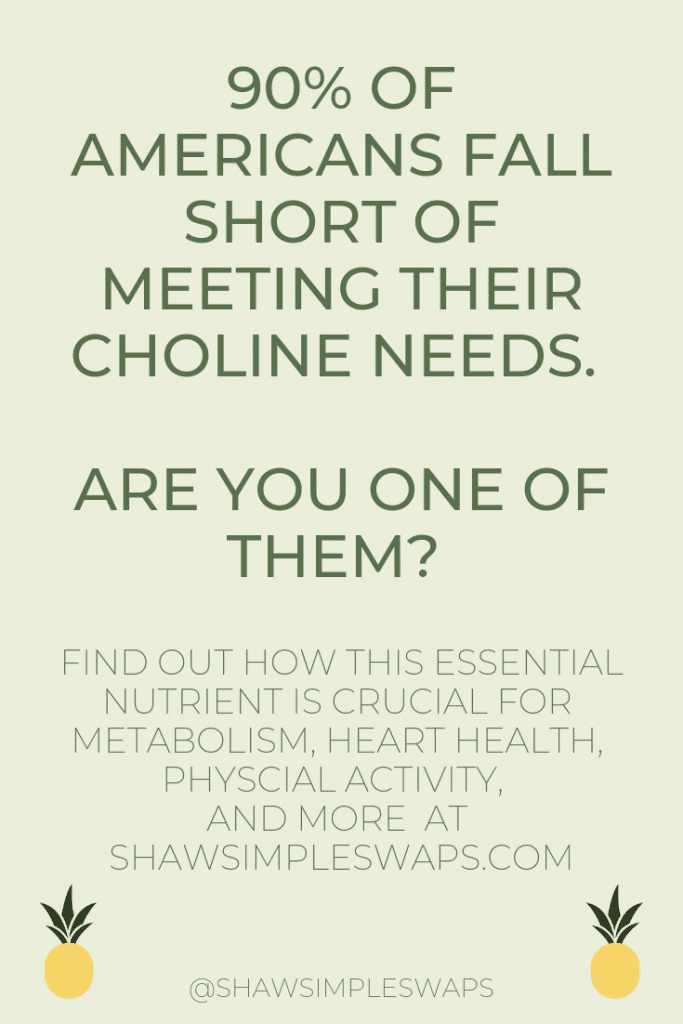
Here’s the deal: choline is very similar in its functions to B vitamins. For example, it helps provide energy via its role in metabolism and is crucial in maternal and infant health, as well as a few other areas we’ll chat about below.
Despite the important role research continues to demonstrate regarding choline, the intake gap is staggering (you can read more about my take on this here in Shape). With such a significant number of individuals at a choline nutrient deficit – and only about 8 percent of pregnant women currently meeting intake needs for choline – it’s important to provide an education on why everyone needs this nutrient, where you can find it and what you need to know about supplementation.
Why is choline essential in the body?
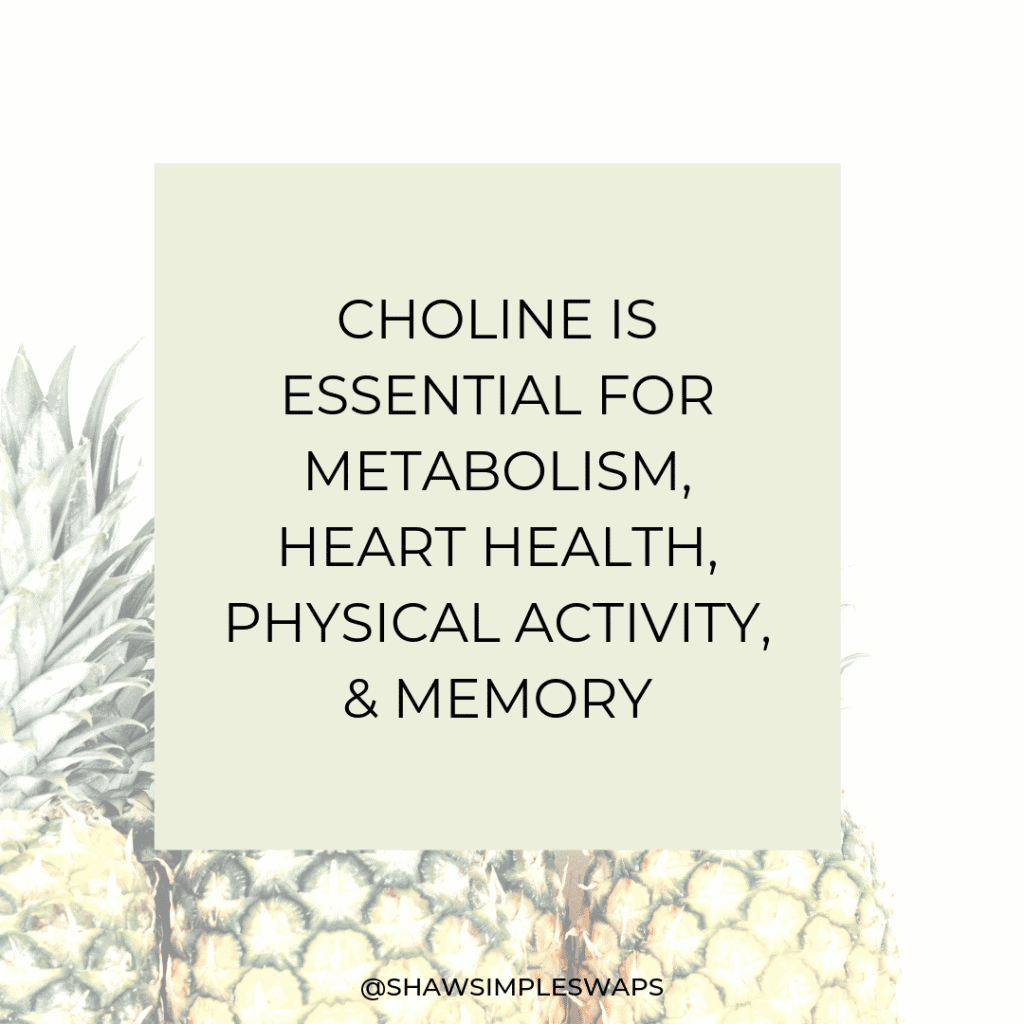
Metabolism
Your liver is a vital organ in your body. In order to keep it running smoothly, choline is needed to help move fat out and convert food into energy.
With over 100 million individuals (many children mind you) in the US diagnosed with non-alcoholic fatty liver disease related to obesity and poor nutrition and lifestyle choices, it’s important to recognize that adequate choline intakes play a crucial role in keeping your liver (aka the body’s natural detox system) in tip top shape!
Memory
Don’t you want to remember just what you need to do tomorrow? Or, how about that awesome podcast you heard yesterday that inspired your next passion project? Recent studies continue to reinforce that choline is essential to help improve your memory and retain knowledge.
A new animal study published in Molecular Psychiatry found that choline may offer beneficial effects to reduce the risk of developing Alzheimer’s disease in mice. The cool thing? The benefits weren’t just seen in the mice receiving the choline supplementation, but in their offspring as well.
Physical activity
Your muscles require a signal from your brain to get moving! Choline helps send this signal while also providing you the energy you need to keep that bicep curl going strong.
Plus, choline also plays a role in optimizing nitric oxide (NO) in the body. NO has been shown to improve blood flow and increase the delivery of oxygen and nutrients to the muscles, helping to improve endurance and fitness, long-term.
Heart Health
Homocysteine (aka, an amino acid in the blood) can increase your risk for heart disease. Choline helps to reduce your circulating levels of homocysteine and keep your heart healthy! You’ll see why below, but this is a gentle reminder not to toss that egg yolk, contrary to what you may have heard!
What makes it so important for maternal health?
Now that we’ve laid the framework, let’s remind you why choline is especially NECESSARY for maternal health (from conception to pregnancy and through the postpartum period.)
Reason #1:
It’s passed from mother to baby during pregnancy. Not only does it help to prevent neural tube defects, lower preeclampsia risk factor AND ease baby’s response to stress, but it also may improve your baby’s abilities to process and store information later in life.
Plus, choline gives the mamma-to-be more energy when paired with those B-vitamins!
Reason #2:
It helps build and boost baby’s brain. During infancy and early childhood development, it’s essential to help build the brain and its functioning.
Recent research has even shown that increased choline during pregnancy (930 mg/day to be exact) was correlated with improved processing speed in infants. In fact, the critical importance of choline in maternal and infant health (and the corresponding gap that exists among pregnant women) prompted the American Medical Association (AMA) to support evidence-based amounts of choline in all prenatal vitamins (currently most prenatal vitamins fall short in providing the 450 mg of choline a pregnant woman needs each day). Additionally, the American Academy of Pediatrics recently issued a policy statement calling out choline as one of several key ‘brain-building’ nutrients.
Alright, enough on the WHY’s, now let’s talk about those sources and amounts.
What food sources contain choline?
Choline is unfortunately one of those nutrients that isn’t found in your typical American diet. And, the best sources are in foods that tend to be unpopular, such as liver, lima beans and egg yolks.
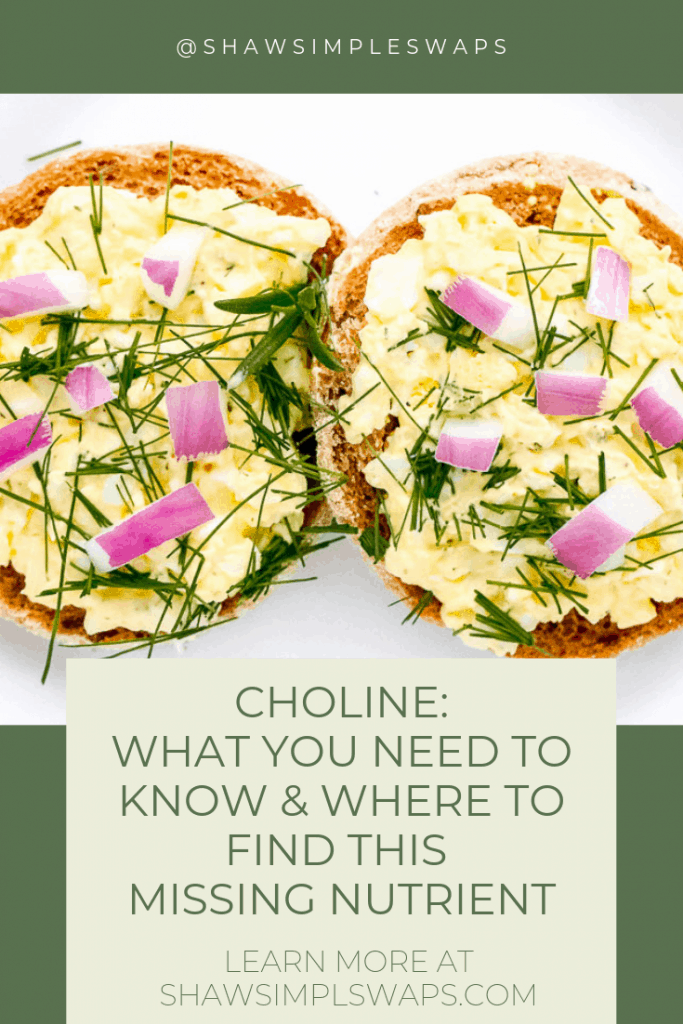
It takes some effort to meet your daily reference intake (DRI) of 550 mg for adult males and 425 mg for adult females. Plus, needs increase during pregnancy and lactation to 450 mg/day for adult females.
If you’re curious how to meet your daily choline needs through diet alone, checkout my latest post here.
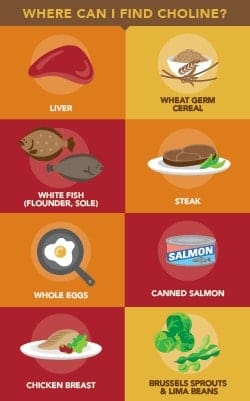
When should you consider a supplement?
It is nearly impossible to meet your needs every day through food alone, no matter what dietary pattern you follow. That’s where having a safety net, or trusted supplement, comes into play.
As I shared earlier, many prenatal vitamins fall short of meeting recommendations, and the same is true of multi-vitamins as well. While we’re still waiting for many companies to revise their formulations, I recommend to anyone trying to conceive, as well as those who are pregnant or postpartum, to include an additional supplement in their daily diets.
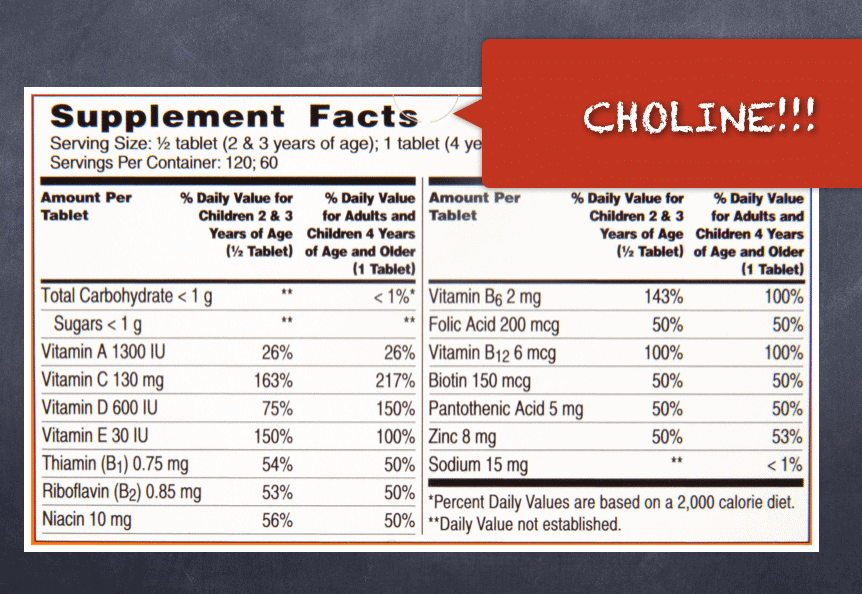
And if you don’t fall into one of these categories, you should still consider choline supplementation. It’s important at all ages and stages of life! Look for a brand of choline that will help meet your recommended intake amounts.
Phew! That was a lot of information, but I promise it’s all necessary and there truly is so much more we’re constantly learning about the important role choline plays in our health.


Pete says
What does choline contribute in the body? I just heard this word today.
Elizabeth Shaw says
Hello! Glad you found this post. Let me know if you have any specific questions once you take a look at the roles discussed above!
Natalie says
Thank you for sharing this info. I didn’t now that choline is so important for our health. I will definitely take more care about it in the future.
Elizabeth Shaw says
Not to worry, many people are still learning about choline too! So Glad this helped!